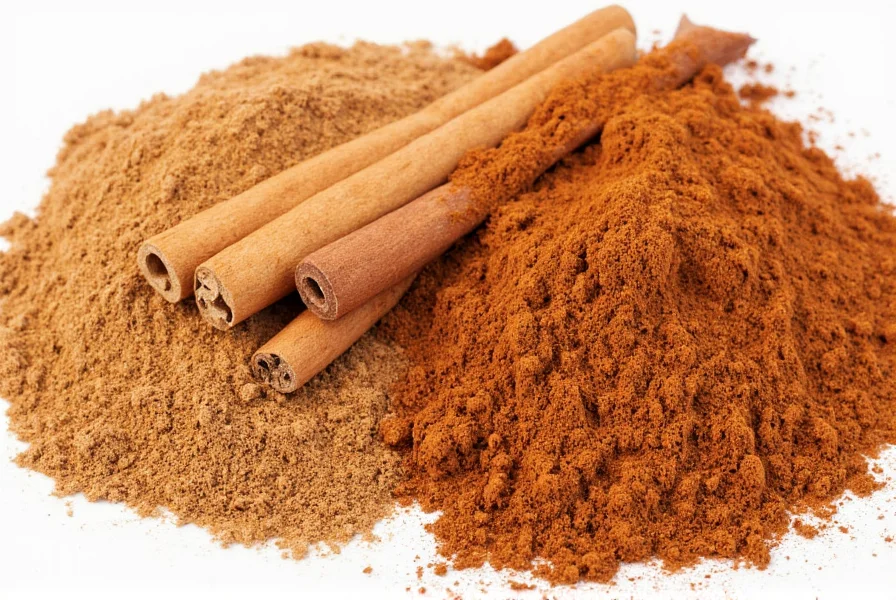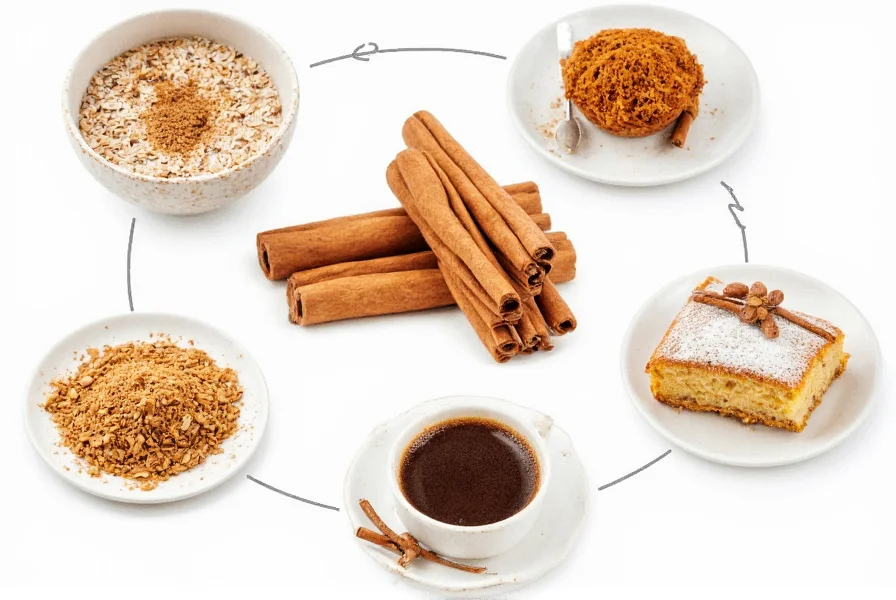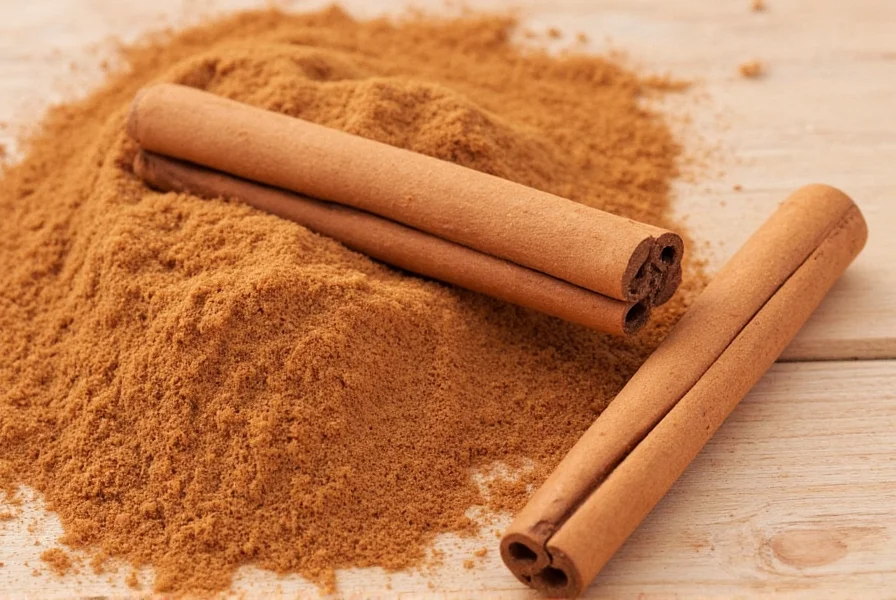For centuries, cinnamon has been prized not just for its warm, sweet flavor but for its remarkable health-promoting properties. Modern research continues to validate many traditional uses of this ancient spice, revealing its potential to support metabolic health, combat oxidative stress, and protect against chronic disease. Unlike many wellness trends that lack scientific backing, cinnamon's benefits are supported by numerous clinical studies and laboratory research.
Understanding Cinnamon: Types and Composition
Cinnamon comes primarily from the inner bark of trees belonging to the Cinnamomum genus. Two varieties dominate the market:
| Type | Origin | Coumarin Content | Common Usage |
|---|---|---|---|
| Ceylon Cinnamon | Sri Lanka | Very low (0.004%) | Premium markets, health-focused applications |
| Cassia Cinnamon | China, Indonesia | High (5-12%) | Most supermarket varieties, commercial products |
The key difference lies in coumarin content—a compound that can cause liver damage in high doses. Ceylon cinnamon contains negligible amounts, making it preferable for regular consumption, while Cassia contains significantly higher levels. When researching natural blood sugar regulation with cinnamon, this distinction becomes particularly important.

Science-Backed Health Benefits of Cinnamon
Blood Sugar Regulation and Insulin Sensitivity
One of cinnamon's most well-documented benefits relates to managing blood glucose levels. Multiple studies demonstrate cinnamon's ability to improve insulin sensitivity and reduce fasting blood glucose. A comprehensive meta-analysis published in the Journal of the Academy of Nutrition and Dietetics found that cinnamon supplementation significantly lowered fasting blood glucose levels in people with type 2 diabetes and prediabetes.
The active compounds, particularly cinnamaldehyde and polyphenols, appear to mimic insulin's effects and enhance glucose uptake by cells. For those exploring natural approaches to blood sugar management, incorporating 1-3 grams of Ceylon cinnamon daily shows promising results without the risks associated with higher coumarin intake.
Powerful Antioxidant Properties
Cinnamon ranks among the most antioxidant-rich spices, with an ORAC (Oxygen Radical Absorbance Capacity) value significantly higher than many fruits and vegetables. These antioxidants, including polyphenols like epicatechin and zeylanol, combat oxidative stress that contributes to chronic disease development.
Research in Oxidative Medicine and Cellular Longevity indicates that cinnamon's antioxidant capacity helps protect against cellular damage, potentially reducing the risk of neurodegenerative conditions. When considering cinnamon antioxidant benefits for overall health, regular moderate consumption appears beneficial for long-term cellular protection.
Anti-Inflammatory Effects
Chronic inflammation underlies many modern diseases, and cinnamon demonstrates notable anti-inflammatory properties. Studies show that cinnamaldehyde inhibits the release of inflammatory mediators like tumor necrosis factor-alpha (TNF-α) and interleukin-6 (IL-6).
For individuals seeking natural inflammation reduction through diet, incorporating cinnamon regularly may complement other anti-inflammatory lifestyle choices. A study in Food and Chemical Toxicology demonstrated that cinnamon extract reduced inflammatory markers in animal models, suggesting potential applications for inflammatory conditions in humans.
Cardiovascular Health Support
Emerging research suggests cinnamon may support heart health through multiple mechanisms. Clinical trials indicate that cinnamon consumption can reduce triglycerides, LDL cholesterol, and total cholesterol levels while maintaining HDL ("good") cholesterol.
When examining cinnamon benefits for heart health, the evidence points to modest but significant improvements in cardiovascular risk factors. A review in Nutrition Research concluded that cinnamon supplementation showed promise in improving lipid profiles, particularly in individuals with metabolic disorders.
Practical Usage Guidelines
Recommended Daily Intake
Research suggests optimal benefits occur with 1-6 grams (approximately 0.5-2 teaspoons) of Ceylon cinnamon daily. For Cassia cinnamon, limiting intake to 0.5-2 grams daily is advisable due to higher coumarin content. Those with liver conditions or taking medications should consult healthcare providers before regular consumption.
Incorporating Cinnamon Into Your Diet
Maximize health benefits of cinnamon in daily meals with these practical approaches:
- Add to morning coffee, tea, or smoothies
- Sprinkle on oatmeal, yogurt, or fruit
- Use in savory dishes like curries and stews
- Include in baked goods using Ceylon variety
- Create cinnamon-infused water for hydration

Safety Considerations and Potential Side Effects
While generally safe when consumed in culinary amounts, excessive cinnamon intake—particularly Cassia variety—can cause issues:
- Coumarin toxicity: High Cassia consumption may affect liver function
- Oral irritation: Direct contact with cinnamon powder can cause mouth sores
- Blood thinning: May interact with anticoagulant medications
- Allergic reactions: Rare but possible, especially with occupational exposure
Pregnant women and individuals with liver conditions should exercise particular caution. When researching safe cinnamon consumption guidelines, prioritizing Ceylon variety and moderate daily amounts provides the best risk-benefit profile.
Conclusion: Evidence-Based Approach to Cinnamon Benefits
Cinnamon represents a rare example of a culinary spice with substantial scientific backing for health benefits. From blood sugar regulation to antioxidant protection, the evidence supporting cinnamon's health-promoting properties continues to grow. By choosing Ceylon variety, consuming appropriate amounts, and incorporating it consistently into a balanced diet, individuals can harness these benefits safely.
As with any natural compound, cinnamon works best as part of a comprehensive approach to health rather than a standalone solution. The research clearly indicates that moderate, regular consumption provides measurable benefits without significant risks when proper precautions are observed.
Frequently Asked Questions
What's the difference between Ceylon and Cassia cinnamon for health benefits?
Ceylon cinnamon ("true cinnamon") contains significantly lower levels of coumarin—a compound that can cause liver damage in high doses—compared to Cassia cinnamon. Both varieties offer similar health benefits including blood sugar regulation and antioxidant effects, but Ceylon is safer for regular, long-term consumption. Most supermarket cinnamon is Cassia, while Ceylon typically costs more and has a lighter color and more delicate flavor.
How much cinnamon should I take daily for blood sugar benefits?
Research suggests 1-3 grams (approximately 0.5-1 teaspoon) of Ceylon cinnamon daily provides blood sugar regulation benefits without excessive coumarin intake. For Cassia cinnamon, limit to 0.5-2 grams daily due to higher coumarin content. Consistent daily consumption appears more effective than sporadic larger doses. Always consult with a healthcare provider before using cinnamon therapeutically, especially if you have diabetes or take blood sugar medications.
Can cinnamon help with inflammation and what's the evidence?
Yes, multiple studies demonstrate cinnamon's anti-inflammatory properties. Research shows cinnamon compounds, particularly cinnamaldehyde, inhibit inflammatory pathways by reducing markers like TNF-α and IL-6. A study in Food and Chemical Toxicology found cinnamon extract significantly reduced inflammation in animal models. While human studies are more limited, the existing evidence suggests regular moderate consumption of cinnamon can contribute to an anti-inflammatory diet, potentially benefiting those with chronic inflammatory conditions.
Are there any safety concerns with daily cinnamon consumption?
The primary safety concern with daily cinnamon consumption relates to coumarin content, particularly in Cassia cinnamon. High coumarin intake may cause liver damage in sensitive individuals. Other potential issues include mouth irritation from direct contact with powder, possible interactions with blood-thinning medications, and rare allergic reactions. To minimize risks, choose Ceylon cinnamon for regular use, limit daily intake to 1-3 grams, and consult your healthcare provider if you have liver conditions or take medications.
How long does it take to see health benefits from regular cinnamon consumption?
Research suggests it typically takes 4-12 weeks of consistent daily consumption to observe measurable health benefits from cinnamon, particularly for blood sugar regulation. Some studies show improvements in fasting glucose levels within 30 days of regular consumption (1-3 grams daily). The timeframe varies based on individual factors including baseline health status, dosage, cinnamon type, and overall diet and lifestyle. Benefits related to antioxidant protection may accumulate gradually over longer periods of consistent use.











 浙公网安备
33010002000092号
浙公网安备
33010002000092号 浙B2-20120091-4
浙B2-20120091-4